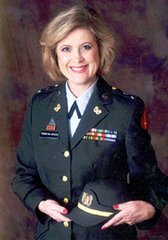THREE BEAUTIFUL THINGS
LIVING IN HAPPYSTAN
Well, it's time for me to list THREE BEAUTIFUL THINGS at the beginning of my sporadic essay about writing instead of at the end. I realized yesterday that I am rich. No, I don't have a lot of money, but - here's the revelatory part - I have what I need to be happy. I read a New York Times article yesterday about "Richistan" - that foreign country where US folks go when they become wealthy, but don't necessarily gain any sense or wisdom with their dollars. I decided that I live in Happystan, a much better place.
I celebrated a birthday yesterday - not one of the great big milestones, but the sort that draws you up short and makes you wonder where all the years went.
Ten years ago, I thought that by now I would be winding down a successful career, in the last two years of satisfying work for that same company where I was working, with the prospect of retirement in sight. But things don't always work out the way you think. Shortly after that I was laid off from my job and bought a little house in a different town next to the one my husband had bought. They were too small for us both, but we joined the backyards and lived in both. It was an unusual but really great arrangement. I found work at a different company, and started to plan again. Being a homeowner was fun, but I missed living in Pasadena where I had spent 28 wonderful years.
Shortly after that, 9/11 happened. I retired from the Army and had a stroke. You just never know when that strong body will stop working. It made the other milestones pale in importance.
Okay, I pressed on and went back to work. Different company, closer to home. In 2005, I took a job that didn't work out and went through the trauma of a lawsuit in 2006. I had to sell my sweet little house.
But the real estate market had changed a lot - my husband and I found a beautiful mid-century modern house and sold our two little cottages to buy it. We lucked out - those little houses had really appreciated.
Now I had the house of my dreams, but no job. Then, just as my unemployment insurance ran out, I got a job offer. I am working in that job still, although the contract will be ending shortly and I'll once again be out of work on September 28th.
Or will I? Just when I got used to the idea - was looking forward to it, even - I got a lead on a wonderful job. Okay, it's a long drive, but I've driven that far before. I am definitely going to check it out, at any rate. I know they want someone sooner than I am available, but maybe I can help them recruit someone. I know lots of folks in my biz, after all.
Our beautiful house is almost paid for. We enjoy working on it and in October, it's going to be on the Pomona Heritage Home Tour - the only modern house on the tour this year!
I have to say, the house is certainly one of my BEAUTIFUL THINGS.
I had a wonderful birthday yesterday - my Dear Husband brought me a weird-looking plant which I love. It's a bromeliad, and he is always one of my BEAUTIFUL THINGS.
After a really nice phone call, a prestigious company sent me a great email along with an application and a list of their benefits. Getting job interest at my age - and in my physical condition - just made me grin the whole day. Maybe I'm not ready for the rocker yet.
Even if you can't dance, it's still great to be asked. That recruiter's email is certainly a BEAUTIFUL THING. I'm going to go talk to them in person as soon as I can. I think I'm all excited about my work again.
I look at it this way. I am living in Happystan. I have enough to stop working when this contract is over and spend more time writing and gardening and improving my health. (Physical therapy is difficult and time-consuming, but it sure makes a difference!) I am not rich - but I don't need much, either.
But Happystan's borders are not limited to retirement; I love the idea that my last job before retirement might be something I really love, something where I really fit in and where the work is right up my alley, unlike my present job. I don't need a gold watch, but I'd like a retirement lunch, again unlikely in my present contract job. Just the possibility of this has set me to daydreaming about making the long commute and wearing an access badge and working in a place where we all know the same acronyms.
So maybe I am rich. I have choices I never considered before. I have opportunities and offers and new horizons, as well as the security of my home and family and garden. I have almost enough to get by without working, but I love my work. I make time to write, and I love that, too.
Maybe this euphoria will wear off - maybe the job will fall through and my electric bill will shock me out of complacency. But I will still be living the good - and simple - life in Happystan.




















